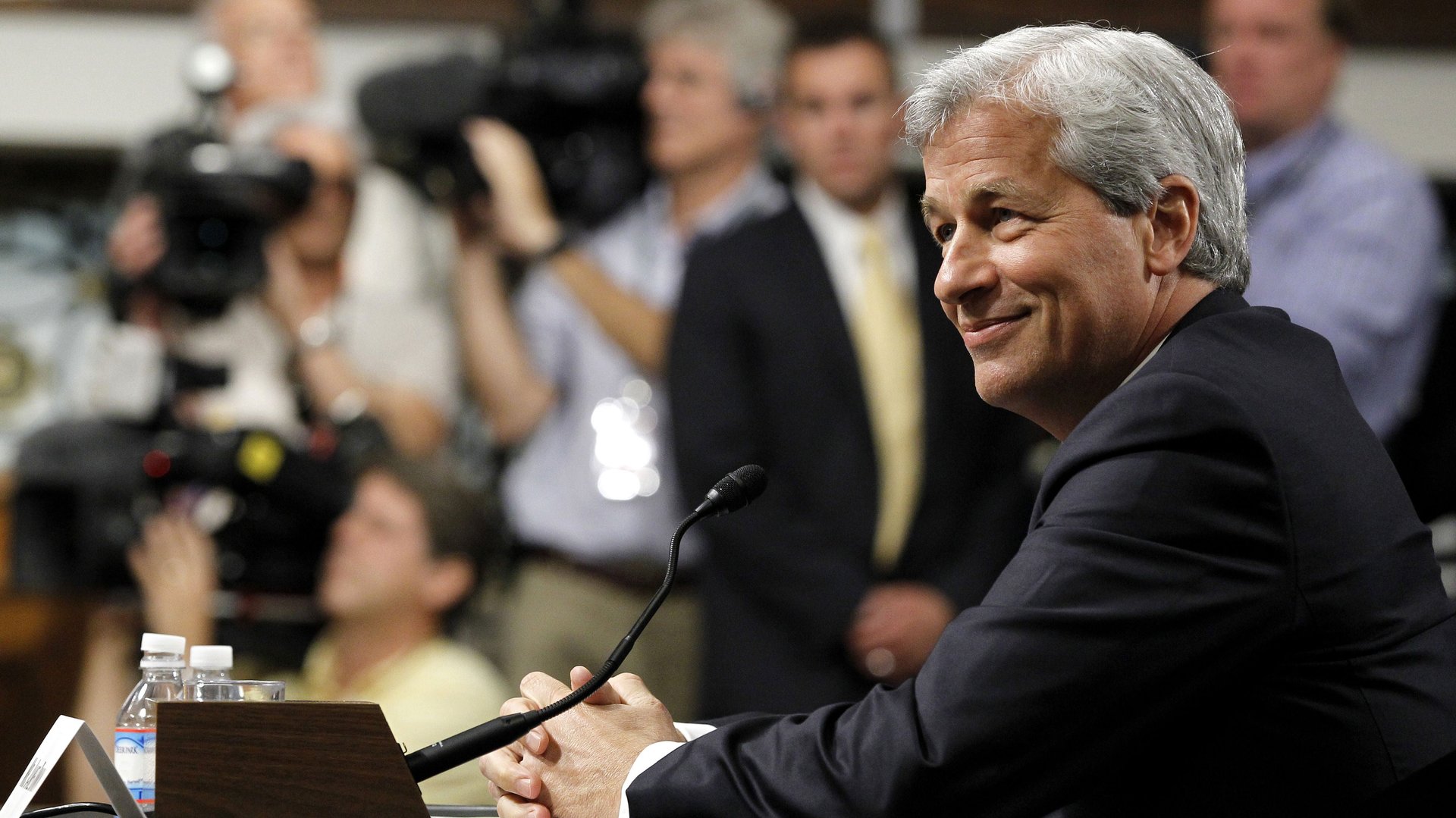For US bank regulators, JP Morgan’s London whale will be the one who got away
Yesterday, the Office of the Comptroller of the Currency (pdf) and the Federal Reserve released enforcement actions against JP Morgan, the culmination of months of research into a more than $6 billion bad bet made by the bank’s so-called “chief investment office” (CIO) which spiraled out of control last spring.


Yesterday, the Office of the Comptroller of the Currency (pdf) and the Federal Reserve released enforcement actions against JP Morgan, the culmination of months of research into a more than $6 billion bad bet made by the bank’s so-called “chief investment office” (CIO) which spiraled out of control last spring.
Bruno Iksil, a trader in JP Morgan’s London Office, earned the moniker “London whale” because he amassed a position in corporate credit derivatives so large that it moved markets. The position banked on the likelihood of systemic crisis in Europe, but Iksil was blindsided by an outpouring of optimism about the future of the euro in early 2012. When the going got tough, Iksil’s managers overrode a lot of the bank’s typical risk management procedures, instead piling on more exposure to the bet.
The OCC’s and Fed’s enforcement actions amounted to little more than a slap on the wrist. The bank will have to submit a variety of plans and work with officials and change some of their risk management policies, but—as this case clearly demonstrates—procedures aren’t fail-safe. And so far, no one has asked JP Morgan to actually admit to any wrongdoing.
But the Feds missed the opportunity to make deeper decisions about what banks can and cannot do. At issue here is whether the bad bet was a “hedge,” a bet made to control for losses, or “proprietary trading,” gambles made using the bank’s own money that would have been prohibited by the Volcker Rule. Dodd-Frank legislation—a series of economic reforms passed in response to the financial crisis—attempts to narrow down the kinds of bets banks can make with their own funds but doesn’t completely outlaw the practice.
Case in point: in a June Congressional hearing, Dimon argued that the “whale” bet was simple “hedging” which would have staved off losses in the event of a euro zone implosion. But “hedging,” as Congressmen pointed out at the time, doesn’t really capture the nature of the bet. Whether or not the trade ran against the bank’s base case scenario, it was still speculating with a huge sum of its own money. Clearly there’s some overlap here; the distinction is razor-thin. But in avoiding the topic altogether, the Fed missed an opportunity to make a statement about what risks banks should and should not be able to take.
Elsewhere, JP Morgan’s board will dock CEO Jamie Dimon’s bonus for the year. (Last year it was $20 million.) The UK’s Financial Services Authority has launched an ongoing investigation into the scandal, and the US Federal Bureau of Investigation (FBI) was, at least at one point, looking into whether traders made false statements about the nature of the value of their positions to clients. However, it’s unlikely that either of these investigations will bear fruit. It would be hard to make criminal charges stick, and it’s improbable that the FSA will do much the Fed and OCC won’t.
When it releases its fourth quarter earnings tomorrow, JP Morgan is expected to reveal the results of its internal investigation into the trading loss. The report is thought to lambast JP Morgan CEO Jamie Dimon for lack of oversight, but given Dimon’s willingness to release it, will not call for the bank to get a new captain. Instead, it looks like the the scandal will slowly swim away.